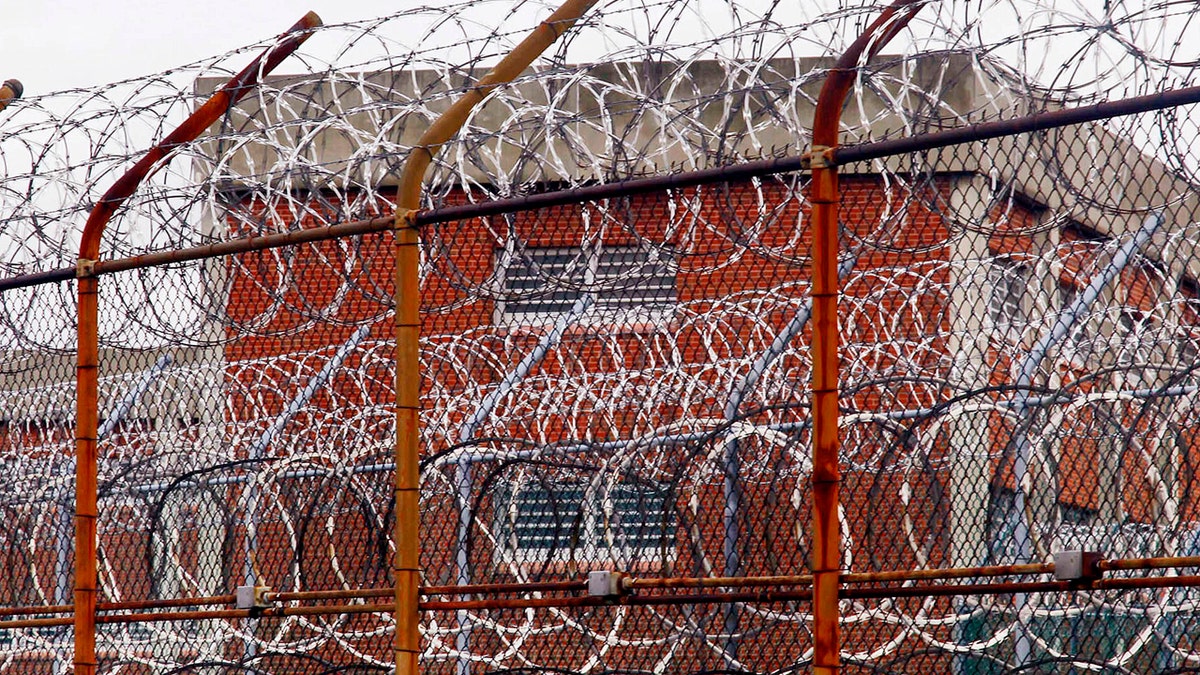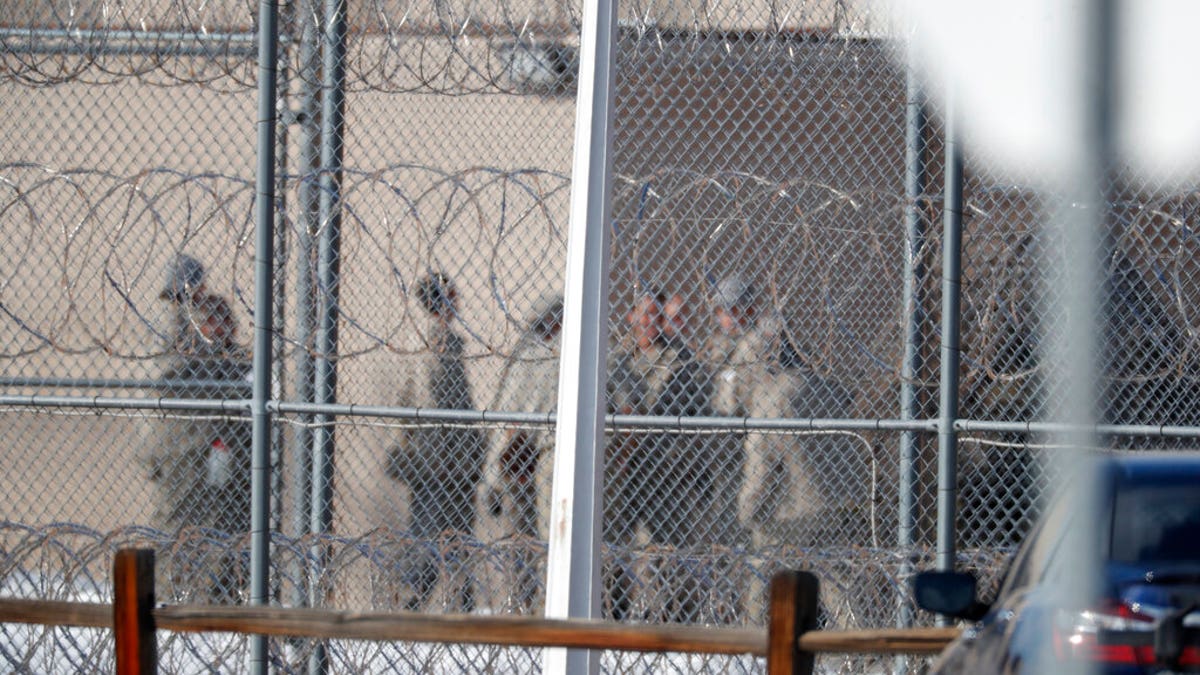High-risk California sex offenders released amid coronavirus pandemic
Orange County District Attorney Todd Spitzer weighs in on ‘Fox and Friends.’
Get all the latest news on coronavirus and more delivered daily to your inbox. Sign up here.
Ever since the novel coronavirus, also termed COVID-19, took hold of the country – including prisons and jails – authorities have released tens of thousands of people in either the pretrial phase or those already convicted. Among them have been a significant number of sex offenders, triggering steep concern over whether some officials are diminishing public safety under the fragile lens of public health.
"It is utterly appalling that any government would categorize sex offenders as nonviolent in an attempt to argue they should be released to avoid their exposure to coronavirus," Francey Hakes, a former U.S. Department of Justice (DOJ) official and the first national coordinator for Child Exploitation Prevention and Interdiction, told Fox News. "Jailing business owners who violate lockdown orders, that might actually be unconstitutional in the first place, while pushing to release those who prey on people and communities makes a complete mockery of the justice system."
Back in March, the discretion being used to issue early or pretrial release was centered on prioritizing inmates with underlying health problems or who have committed nonviolent crimes and are considered "low risk" for reoffending, as directed by Attorney General William Barr. But some legal experts have lamented that such mandates have lost their way under state direction.
"The government has an interest in lowering jail populations amid this pandemic. There's no doubt that jails and prisons are petri dishes in that social distancing is nearly impossible to achieve," noted Anahita Sedaghatfar, a Los Angeles-based civil rights attorney and law professor. "But we've seen many instances now where the freeing of inmates has gone all wrong. Orange County is the perfect example."
Indeed, last month seven sex offenders being held at jails in Orange County were ordered by the state to be released, prompting the District Attorney Todd Spitzer to issue a safety warning to the community, highlighting that the "high-risk sex offenders are the most dangerous kind of criminal and the most likely to re-offend" and emphasizing the men were not tested or confirmed to even have contracted the disease. Orange County Sheriff Don Barnes concurred that the jails were not overcrowded, social distancing and quarantine measures have been put in place, thus stressing that freeing these inmates was not necessary.
WOMEN AND CHILDREN AT HIGHER RISK OF VIOLENCE AND SEXUAL ABUSE DURING CORONAVIRUS LOCKDOWN
Over the past two weeks, six of those seven sex offenders have been put back behind bars after alleging breaking the terms of their release, Spitzer has stated. The incident has drawn criticism that the DA was "fear-mongering," yet the release of such sex offenders due to the ongoing pandemic is far from isolated to this one incident.

Health experts say prisons and jails are considered a potential epicenter for America's coronavirus epidemic. (AP Photo/Bebeto Matthews)
While specific statistics regarding how many registered sex offenders or those accused have been set free are not year clear, experts estimate that more than 20,000 inmates of all levels overall have been freed as a result of coronavirus. A new report by the Vera Institute of Justice points to a prison population reduction of around 20,000 over the first few months of 2020, a drop of about 1.6 percent.
In California's Alameda County in late April, a man who was arrested last November in a 22-year cold case, having been convicted of sexually assaulting two women, was released "because of coronavirus concerns." The discharge has been deemed temporary and will be reviewed again by a judge in June.
Across Illinois, some 146 sex offenders are reported to have been released as of late April, including three considered "sexually dangerous persons" convicted in Winnebago and Ogle counties, local media documented.
Critics in Washington State have turned their attention to Gov. Jay Inslee, who initially vowed that violent offenders would remain in lockup, yet an updated list of those up for release on the Department of Corrections (DOC) website included one individual who "was caught exposing himself to a group of children near Regal Elementary.” The Spokane Fox affiliate also highlighted that in late April an additional "child molester" was listed to be part of the "rapid re-entry program."
Moreover in New York, local police decried that state officials had freed inmates, including eight registered sex offenders, some who were at the highest level three for their violations, from the Monroe County Jail without prior warning. Nine of the newly let out were moved to a Holiday Inn Express in Greece, including four of the sex offenders.
"The reality is many sex offenders are violent offenders and are considered 'high risk.' [Yet] we've seen instances where those being released are not being electronically monitored, and law enforcement is not even being advised of the identities of the released inmates, and they are reoffending and being Immediately released again," Sedaghatfar said. "There has to be a much more rational way to go about this. It seems that the way many states have been going about these releases is actually putting the public at a greater risk rather than protecting us."

FILE - In this Feb. 18, 2020, file photo prisoners stand outside of the federal correctional institution in Englewood, Colo. Inmates at all 122 federal correctional facilities across the country will no longer be allowed visits from family, friends or attorneys for the next 30 days, in response to the threat of the coronavirus, officials told The Associated Press on Friday, March 13. (AP Photo/David Zalubowski, File)
Hakes also contended that even the violators who are now required to wear electronic monitoring devices that contain GPS capability could be futile.
"While these ankle bracelets reveal where an offender is, it certainly doesn't track who they are with or what they are doing, so is wholly ineffective in preventing crime, especially a crime against a child," she stressed.
The sudden onslaught of the pandemic has also brought about a number of changes in the way that states register and deal with sex offenders.
In Las Vegas, as a result of the shuttering of some Metropolitan Police Department facilities, the onus is now on registered sex offenders to update, upload or change their information online – including sending screenshots of their case documentation.
And in Michigan, a federal court has introduced temporary changes to the state's sex offender registration legislation as a result of the coronavirus onslaught. According to local news reports, this means that "law enforcement must immediately stop enforcing registration, verification, school zone violations, and fee violations in relation to Michigan's sex offender registry law until the coronavirus has ended." The order will reportedly remain until the pandemic is considered "over" – therein, the state of emergency has been lifted or when the Court determines that the temporary halt need no longer apply.
According to California-based criminal defense attorney Troy Slaten, the impetus to release prisoners during the pandemic was the idea that the jail medical facilities would become overrun with patients and suffer a breakdown.
"It was the same fear that has caused a nationwide 'lockdown.' With hindsight, it appears at this point that the fear was worse than the actual effect of the disease, and many more prisoners at the state and federal level were released unnecessarily," he said.
And whether or not an individual issued early release is forced to return remains murky.
"It is unlikely that any inmates would be returned to jail or prison, but it would depend on the specific terms of the individual's release. If the person was released pretrial because the bail was temporarily changed from $100,000 to $0, then they could be required to return if the bail is later increased," Slaten explained. "But if the person was released post-conviction, then it would be highly unlikely that they would be required to go back after the pandemic."
And for the many countless victims of sex crimes, the mere notion of early release is enough to once again rip open deep-seated and traumatic wounds.
"Sex offenders and domestic violence offenders are a danger to the public, and releasing them not only sends the wrong message but puts victims at high risk with their abuser," asserted Allyson Hottinger, a domestic violence survivor and board member of advocacy group the Tina Stewart Foundation. "Releasing them for the coronavirus is another way we are being re-victimized."

Department of Justice sign, Washington, D.C. Many law enforcement agencies are administered by the DOJ, including the FBI, DEA and Federal Bureau of Prisons
Achieving a safe and appropriate balance, however, has been deemed something of a juggling act.
As victims' rights groups and police chiefs bemoan early releases, prison reform advocates argue that social distancing and isolation are next to impossible behind bars, and no prisoner deserves to be left to die from coronavirus.
"With overly full facilities, it is nearly impossible to properly distance, so it is very important to release those who can be released. When it comes to sex offenders, it is important to consider the circumstances of the individual case," noted Jesse Kelley, the government affairs manager for criminal justice policy at the R Street Institute. "I do not think it is fair to classify all 'sex offenders' as violent criminals because not all offenses that are codified in the various states as 'sex offenses' are violent -- for example, people charged with or convicted of indecent exposure or public urination should not be held in a detention facility during a pandemic."
CLICK HERE FOR THE FOX NEWS APP
Kelley also underscored that judicial discretion is an essential tool, and where appropriate, judges should be allowed to consider both the danger of spreading coronavirus in prisons versus general public safety when it comes to releasing individuals with more serious offenses.
"Early release does not diminish the justice system, especially if supplanted by post-release supervision. Early release, like parole, has always been part of how we measure rehabilitation of an incarcerated individual and has always been a point of discussion in the victim community," she added. "Striking a balance of protecting as many people as possible from COVID-19 and ensuring the administration of justice is important, but we have to remember that COVID-19 is a potential death sentence for anyone who contracts it."


